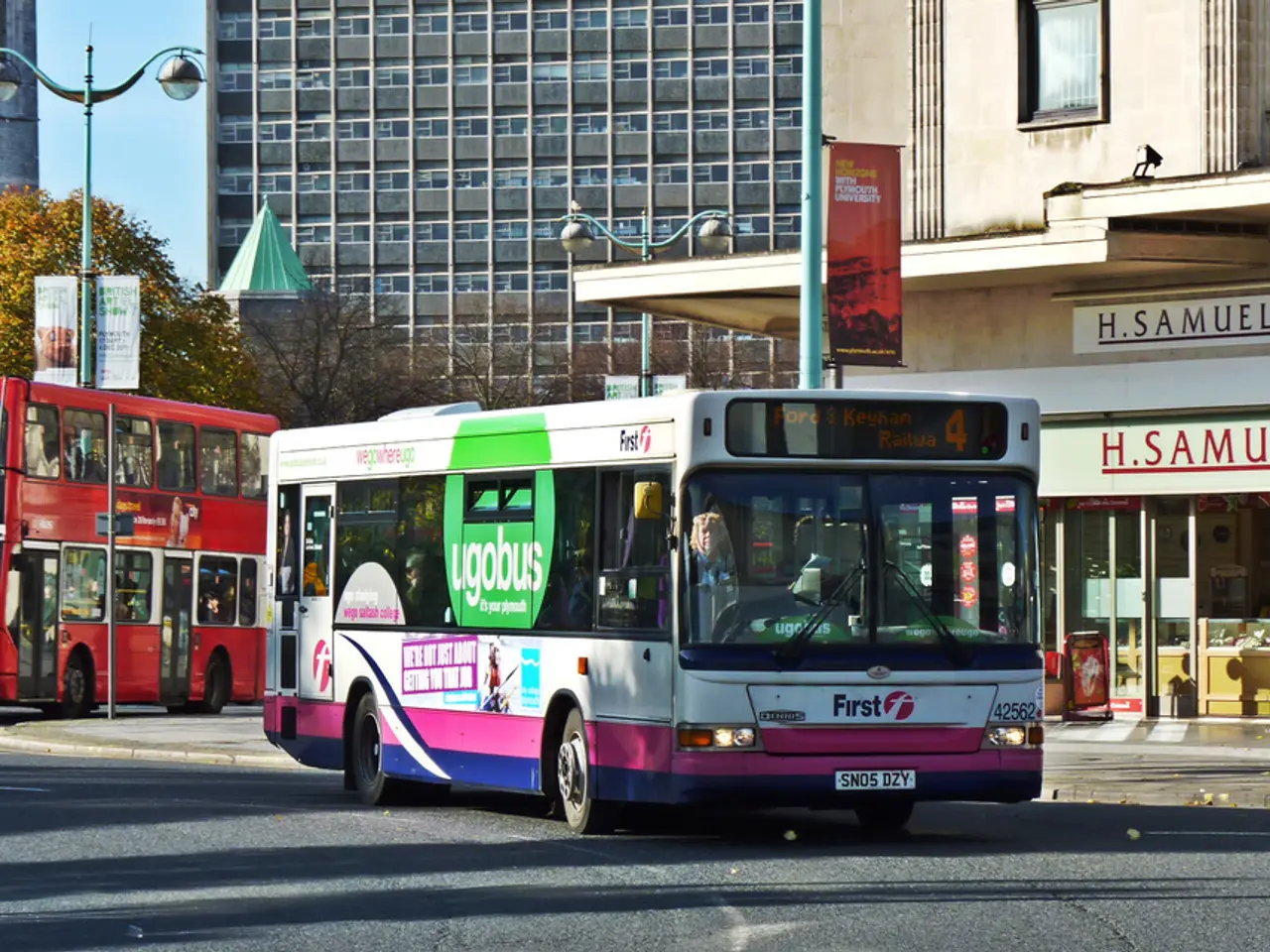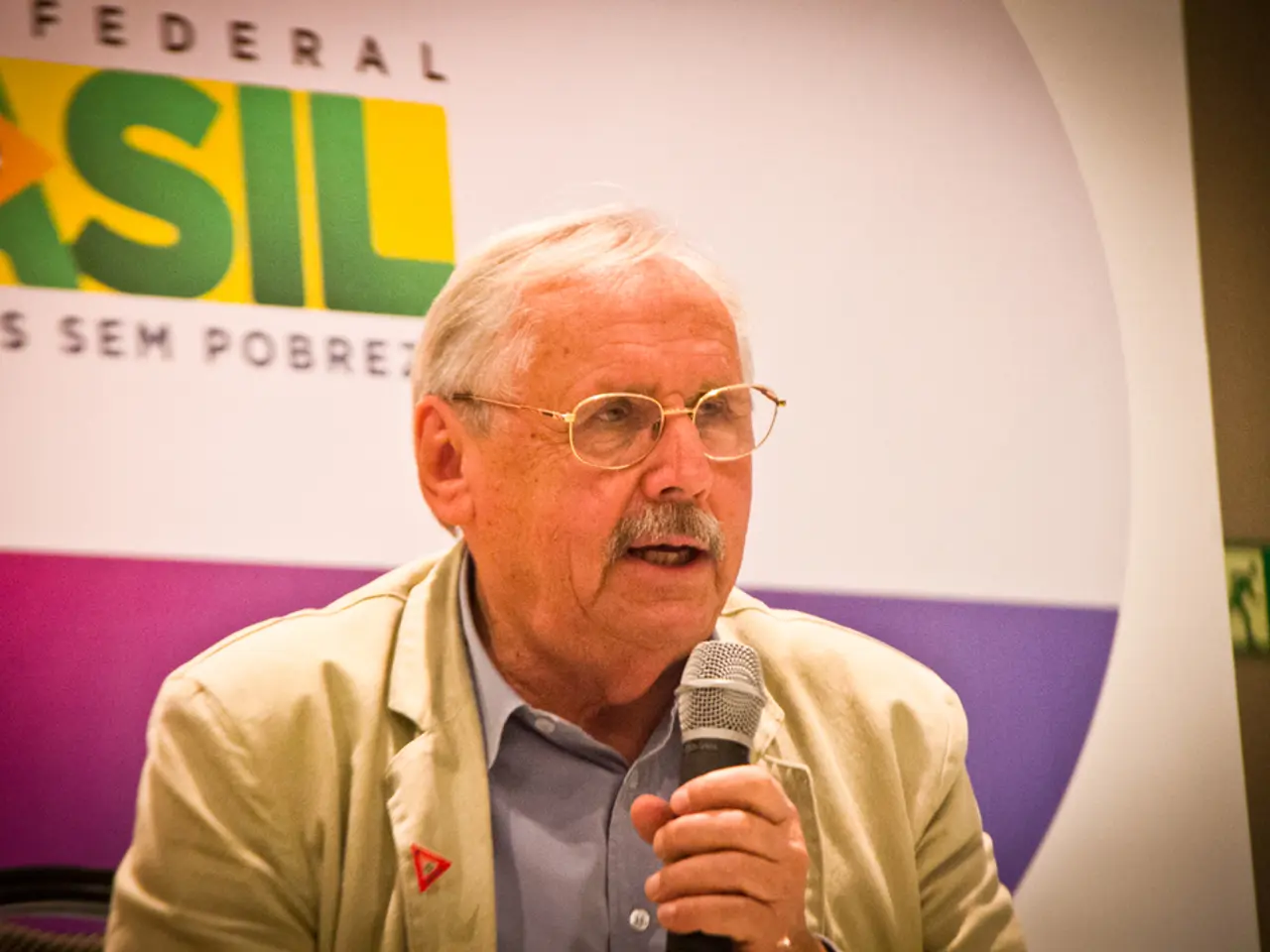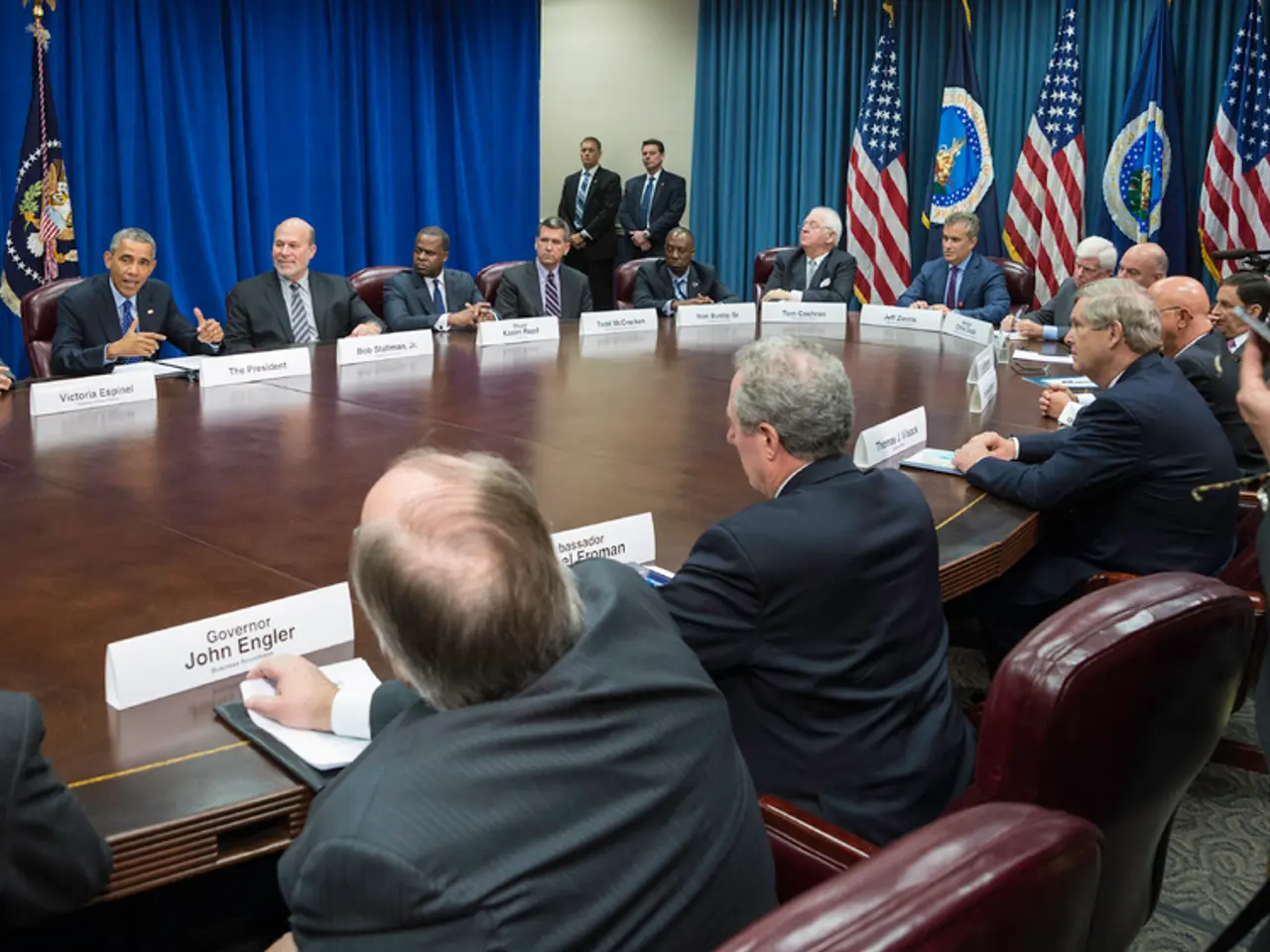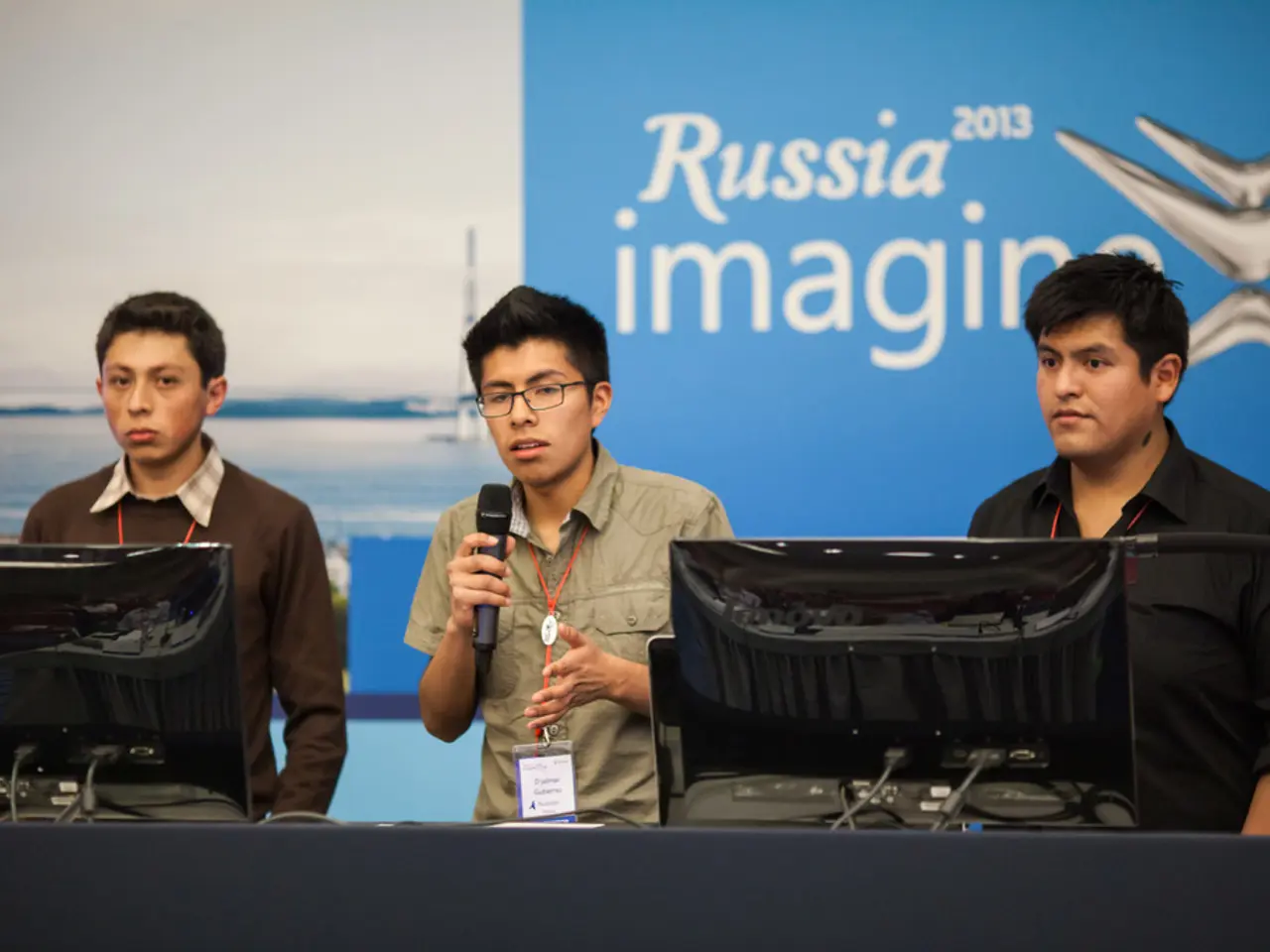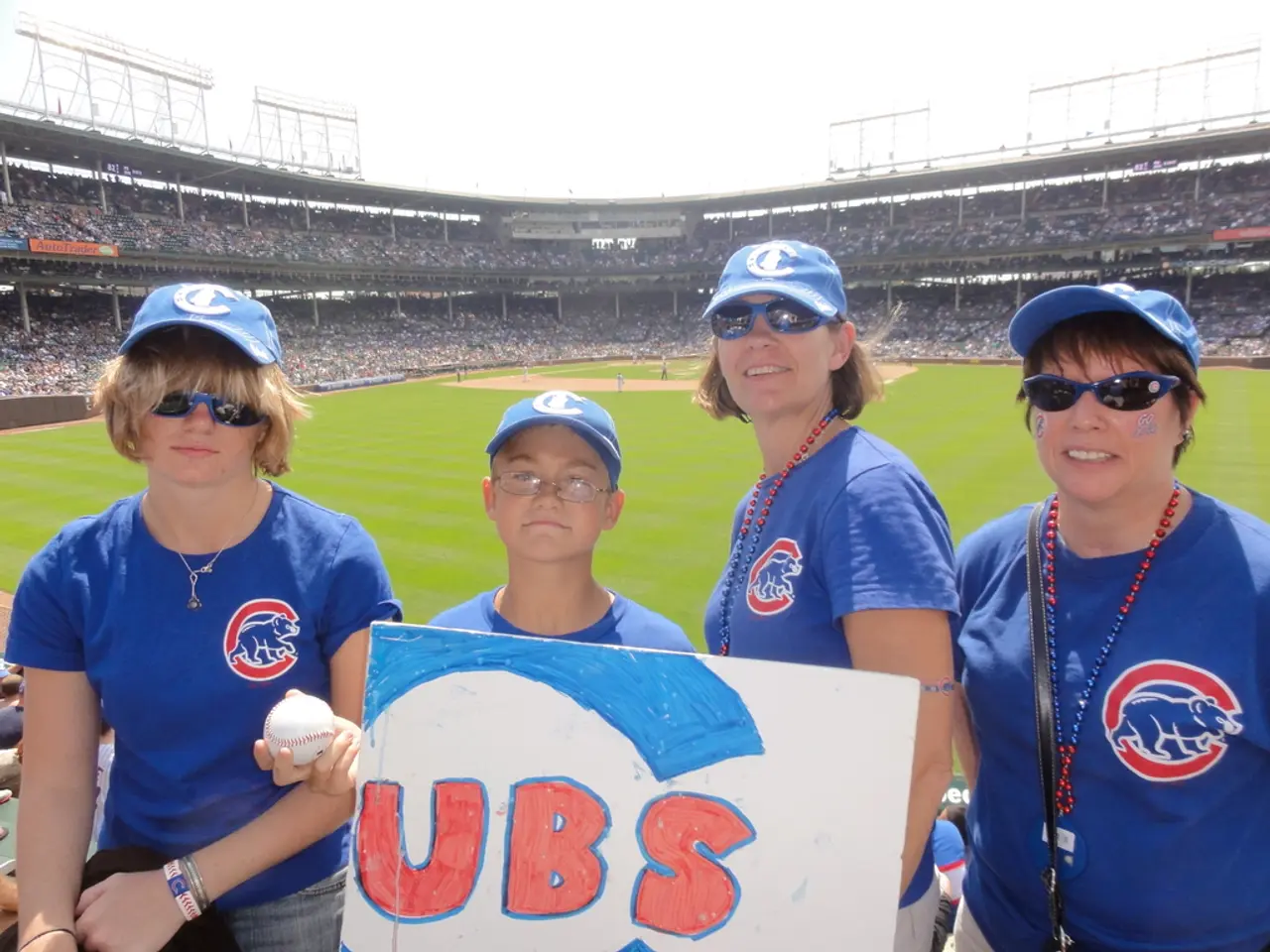Regional Council Elections Held in Tübingen and Freudenstadt Regions
In the upcoming elections in Tübingen and Freudenstadt, the political landscape is shaping up to be an exciting contest of ideas and personalities. Here's a closer look at the candidates, key issues, and the dynamics of majority relations in these regions.
## Candidates
The political arena in Tübingen and Freudenstadt is bustling with contenders from major parties such as the CDU (Christian Democratic Union), SPD (Social Democratic Party), Greens, FDP (Free Democratic Party), and others like the AfD (Alternative for Germany).
One of the most anticipated races is in Tübingen, where Hendrik Bednarz, the Rottenburg mayor, is running against Daniela Hüttig, the current first county official, and Andreas Junt, the vice-president of the community inspection authority. In Freudenstadt, Michael Ruf, the Baiersbronn mayor and CDU faction speaker, is vying for the top position against Klaus Michael Rückert, the current district commissioner.
Local politicians with a strong community presence and a history of public service are often favored in these elections. For instance, Junt, who has a background in heating installation and retail sales, and Ruf, who has been in administration from the start, are both well-known figures in their respective communities.
## Key Issues
The financial situation of the counties and public transportation are key points for the candidates in both Tübingen and Freudenstadt. Hüttig and Bednarz in Tübingen advocate for savings in public transportation due to tight budgets, while Ruf calls for restructuring without cutting everything, and Junt wants to improve the finances to keep employees.
Environmental protection, given the natural beauty of both Tübingen and Freudenstadt, is another significant concern. Preserving natural habitats and managing tourism sustainably are important issues that the candidates will need to address.
Improving educational facilities and healthcare services, as well as upgrading roads, public transportation, and digital infrastructure to support both residents and visitors, are also high on the agenda.
## Majority Relations
In many German local elections, no single party achieves an absolute majority. This means that forming coalitions between parties is common to achieve a governing majority. The voting behavior in these regions often reflects broader national trends, but local issues and personalities can significantly influence outcomes.
High voter turnout is generally seen as a positive indicator of democratic engagement and can influence the balance of power. The majority relations can significantly impact policy decisions, as coalitions often negotiate compromises on key issues.
The elections in Tübingen and Freudenstadt promise to be a fascinating study of local politics, with well-qualified candidates addressing pressing issues and navigating complex majority relations. Stay tuned for more updates as the campaigns unfold.
Management of public finances is a critical issue in the upcoming elections in Tübingen and Freudenstadt, with candidates proposing various strategies such as savings in public transportation, restructuring, and improving the financial situation to maintain employment.
The dynamics of majority relations in these regions might considerably influence the policy decisions, as forming coalitions between parties is common to achieve a governing majority, reflecting both national trends and local issues and personalities. This complex interplay between politics, management, and general news makes the upcoming elections in Tübingen and Freudenstadt an intriguing study of local politics.
